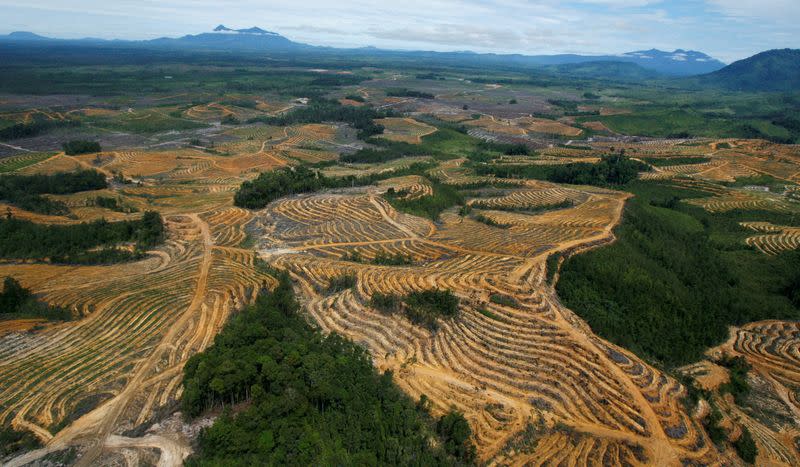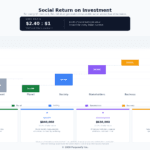EU Seals Deal to Curb Role in Deforestation with New Deal

The Commission welcomes the provisional political agreement just reached between the European Parliament and the Council on an EU Regulation on deforestation-free supply chains. Once adopted and applied, the new law will ensure that a set of key goods placed on the EU market will no longer contribute to deforestation and forest degradation in the EU and elsewhere in the world. Since the EU is a major economy and consumer of these commodities, this step will help stop a significant share of global deforestation and forest degradation, in turn reducing greenhouse gas emissions and biodiversity loss. This major agreement comes just before the start of the milestone Conference on Biodiversity (COP15) which is set to define protection goals for nature for decades to come.
When the new rules enter into force, all relevant companies will have to conduct strict due diligence if they place on the EU market, or export from it: palm oil, cattle, soy, coffee, cocoa, timber and rubber as well as derived products (such as beef, furniture, or chocolate). These commodities have been chosen on the basis of a thorough impact assessment identifying them as the main driver of deforestation due to agricultural expansion.
The political agreement comes just 12 months after the Commission’s 2021 proposal. The final version builds on the core features proposed by the Commission, namely: tackling deforestation regardless of whether it is legal or illegal; strict traceability requirements linking the commodities to the farmland where they were produced; and a country benchmarking system.
New due diligence rules for companies
The new regulation sets strong mandatory due diligence rules for companies that want to place relevant products on the EU market or export them. Operators and traders will have to prove that the products are both deforestation-free (produced on land that was not subject to deforestation after 31 December 2020) and legal (compliant with all relevant applicable laws in force in the country of production).
Companies will also be required to collect precise geographical information on the farmland where the commodities that they source have been grown, so that these commodities can be checked for compliance. Member States need to make sure that not complying with the rules leads to effective and dissuasive penalties.
The list of commodities that are covered will be regularly reviewed and updated, taking into account new data such as changing deforestation patterns.
See related article: EU Cohesion Policy: €3.85 Billion for a Just transition Toward Climate Neutral Economy in Five Polish regions
The Commission will run a benchmarking system that will assess countries or parts thereof and their level of risk of deforestation and forest degradation – a high, standard or low risk – also taking into consideration agricultural expansion for the production of the seven commodities and derived products. Obligations for companies will depend on the level of risk. This will also help guide the EU’s work together with partner countries on halting deforestation, while also paying particular attention to the situation of local communities and indigenous people.
Internationally, the EU will step up its engagement, both bilaterally with producer and consumer countries and in relevant multilateral fora, to ensure the new law is effectively implemented and to assist producer countries where necessary. The new rules will not only reduce greenhouse gas emissions and biodiversity loss, but also help secure the livelihoods of millions of people, including indigenous peoples and local communities across the world, who rely heavily on forest ecosystems.
Next steps
The European Parliament and the Council will now formally have to adopt the new Regulation before it can enter into force. Once the Regulation is in force, operators and traders will have 18 months to implement the new rules. Micro and small enterprises will enjoy a longer adaptation period, as well as other specific provisions.
Background
Deforestation and forest degradation are important drivers of climate change and biodiversity loss — the two key environmental challenges of our time. The Food and Agriculture Organization of the United Nations (FAO) estimates that 420 million hectares of forest — an area larger than the European Union — were lost to deforestation between 1990 and 2020. In terms of net area loss (the difference between area of forest cleared and new surface of forests planted or regenerated), the FAO estimates that the world lost around 178 million hectares of forest cover in the same period of time, which is an area triple the size of France.
The Intergovernmental Panel on Climate Change (IPCC) estimates that 23% of total anthropogenic greenhouse gas emissions (2007-2016) come from agriculture, forestry and other land uses. About 11% of overall emissions are from forestry and other land use, mostly deforestation, while the remaining 12% are direct emissions from agricultural production such as livestock and fertilisers.












